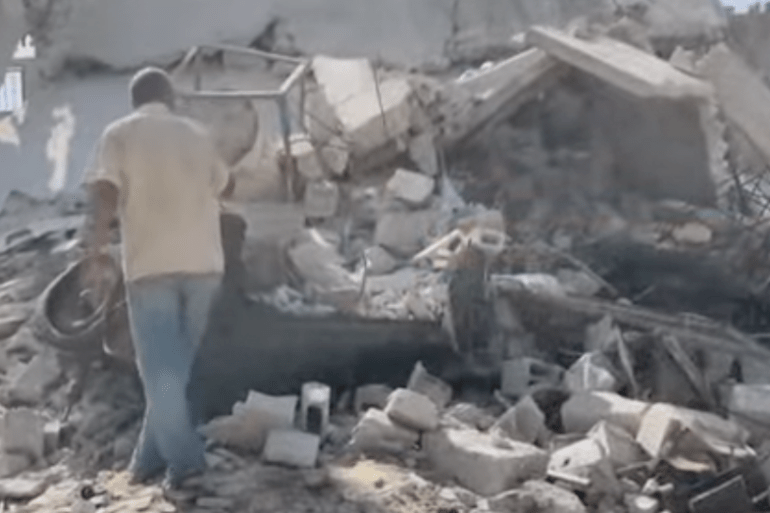URGENT UPDATE: A Palestinian man has pitched a family tent over an unexploded Israeli bomb in Khan Younis, Gaza, as families return to their neighborhoods devastated by Israeli bombardment. Since the ceasefire that took effect on October 10, 2023, over 435,000 people have begun to return, only to find their homes reduced to rubble and dangerous remnants of war.
Returning to his destroyed home, Ayman Qadourah discovered a massive unexploded Israeli armored vehicle, locally referred to as an “explosive robot,” among the ruins. This device, designed to carry powerful munitions, poses a severe risk to Qadourah and his family, who have nowhere else to go.
“Unexploded devices like that are a serious hazard,” Qadourah warned in an interview with Al Jazeera. He fears that any contact with flammable materials could trigger a catastrophic explosion, endangering entire neighborhoods. “If it detonates, it could obliterate everything around it,” he added.
The damage caused by Israeli airstrikes is staggering. According to the United Nations assessments, more than 227,000 housing units across Gaza have been damaged, leaving countless families without shelter. The Khan Younis area alone has seen over 19,000 structures affected, as families struggle to reclaim their lives.
Recent reports from the UN’s Mine Action Service revealed that at least 560 unexploded devices have been identified in accessible areas, with the true scale of the danger still unknown. Since the beginning of October, at least 328 individuals have been reported killed or injured due to these hazards, a number that is likely underreported.
Qadourah, who returned to Khan Younis just a month ago, described the dire conditions of his family. His children are wearing clothes salvaged from the rubble, which have led to severe skin infections. “Despite all that, we are forced to live here because there are simply no alternatives. There isn’t an inch of space left,” he lamented, referring to the overcrowded conditions in nearby displacement camps.
The humanitarian crisis continues to deepen, with agencies ramping up aid deliveries. However, restrictions imposed by Israel severely limit the flow of supplies. The target of getting 600 trucks into Gaza daily remains unrealized, leaving many families without essential food, hygiene supplies, or fuel.
Local officials emphasize that Palestinians who have remained in southern Gaza will not abandon their homes until a permanent housing solution is reached. The situation is dire, and as more families return, the urgent need for humanitarian assistance grows.
The international community is watching closely as conditions remain critical. As families like Qadourah’s attempt to navigate this perilous landscape, the threat of further violence looms large, making the call for effective humanitarian intervention more pressing than ever.







